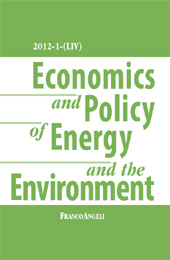Methodology for evaluating the replicability of European energy solutions in global contexts
87-107 p.
Platone (Platone Consortium, 2020) was a four-year Horizon 2020 funded European project that aimed at defining new approaches to increase the observability of renewable energy resources and loads to exploit their flexibility. It developed advanced management open-source platforms to unlock grid flexibility and to realize an open and non-discriminatory market, linking users, aggregators, and operators. These platforms were tested in three pilot projects in Italy (Platone Consortium, 2021), Greece (Platone Consortium, 2023) and Germany (Platone Consortium, 2021) and allow to integrate solutions like: Local Energy Communities, Virtual Power Plants (VPPs) supporting Distribution System Operators (DSOs), FlexibilityBased Reinforcement Planning, and Flexibility Provision by Distributed Resources
The results of pilot projects were complemented by an analysis of the Scalability and Replicability Analysis (SRA) potential of the most promising solutions tested in the demos in the European context (Platone consortium, 2023). The present paper expands the Platone project's insights into a comprehensive methodology for evaluating the replicability potential of solutions developed in the 3 pilot projects in Extra European contexts, notably Canada. By integrating quantitative insights with empirical evidence from pilot projects across Italy, Greece, and Germany, the proposed approach highlights the critical interplay between technical innovation, regulatory adaptability, and stakeholder engagement. The analysis was performed with a qualitative approach. First, a literature review of the similar approaches developed by other European projects that allows to identify the technical, regulatory, and stakeholder acceptance issues that impact on the SRA potential of the Platone solutions
-
Articles from the same issue (available individually)
-
Information
ISSN: 2280-7667
DISCIPLINES
KEYWORDS
- scalability, replicability, smart grids, power system regulations, distribution grids: grid flexibility


